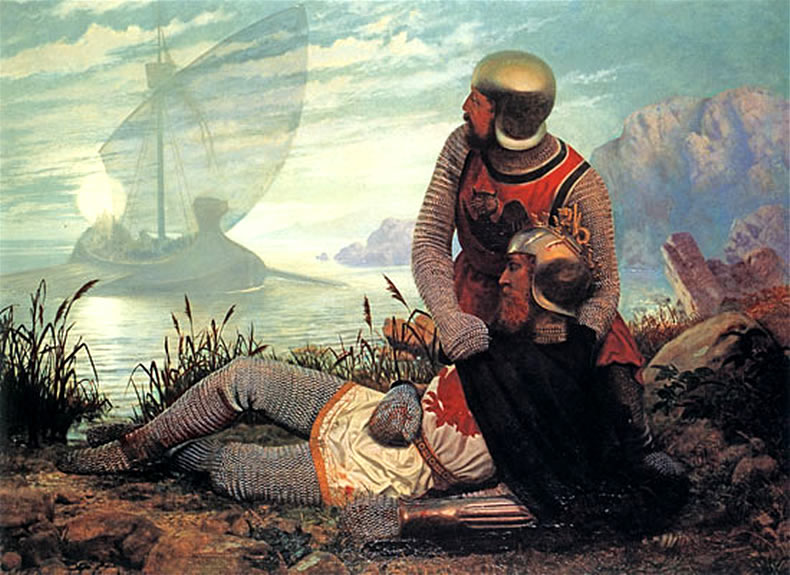They sleep--the men I loved. I think that we
Shall never more, at any future time,
Delight our souls with talk of knightly deeds,
Walking about the gardens and the halls
Of Camelot, as in the days that were.i
The perspective of time something is written and when it's being read is important to consider when interpreting its context. I selected the above lines, 15-19, to examine due how it can be read different ways depending on the time it is read in. The word I was most struck by in this passage is “sleep.” In the first stanza that proceeds these lines the speaker states that the knights have fallen— clearly indicating they died. While sleep is a word sometimes used as a synonym for death, it seemed like a passive word choice to describe knights who died in battle. Sleep conjures images of peace and calm: the opposite of a brutal felling of knights in battle. Moreover, the word is repeated twice: “such a sleep.” Sleep appears to be implying that these men will soon wake even though Tennyson makes it clear in the preceding lines that things will never be the same again. My focusing on sleep and the word choice seeming strange could be a modern interpretation though. The Bible uses sleep to describe death. I also believe it is important to consider the Victorian era which is when this was written when putting into context the above lines. Tennyson is writing about the legend of a man who lived hundreds of years prior to his time; yet, his popularity reigns. I think that Tennyson is describing though the physical man, King Arthur, may die the spirit will continue on. As has been the case with the majority of Arthurian texts, the poem does not focus solely on King Arthur himself; rather, these lines signal the change from Arthur as physical man to the Arthur we know today as a legend. I've come to realize that the King Arthur legend is not about a man but rather an entire culture.

No comments:
Post a Comment